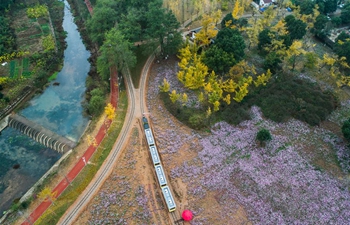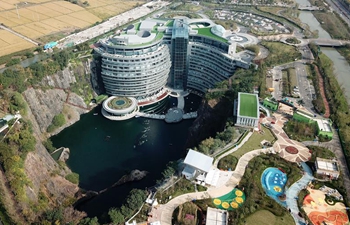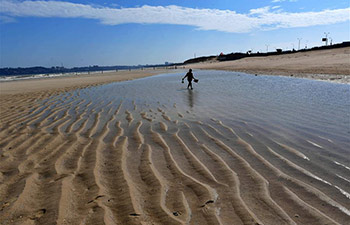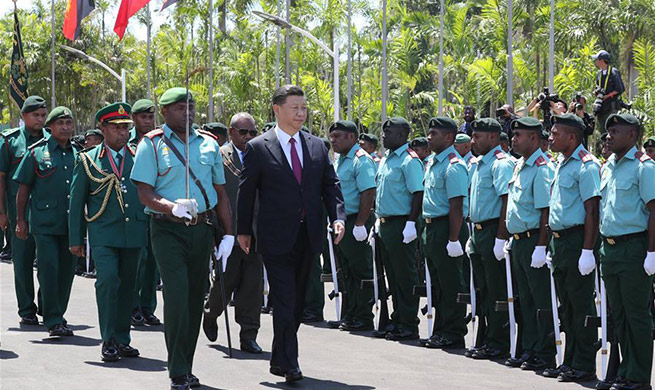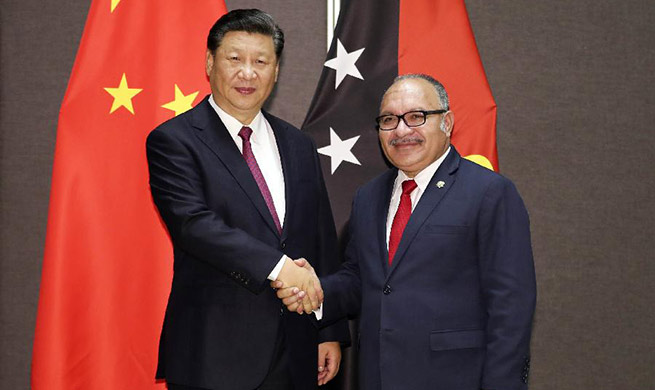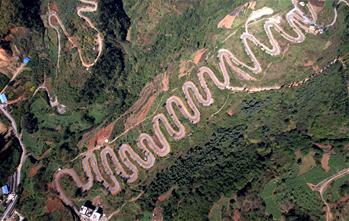JUBA, Nov. 16 (Xinhua) -- Continued destruction of South Sudan's forest cover poses a major threat to the environment and could lead to devastating climate change patterns, a government official warned on Friday.
Joseph Africano Bartel, undersecretary in the Ministry of Environment and Forestry, said despite recent government efforts to crack down on illegal trade in forest products, destruction of the country's trees continue unabated because organized criminals, often equipped with sophisticated logging tools have increased their activities in the country.
Bartel said deforestation has been made worse due to years of conflict in South Sudan, making it difficult for law enforcement officers to crack down on organized criminals.
"The conflict has made it difficult for the ministry of environment to manage forests for the past five years according to the agreed standards because we will not be able to deploy our people to plantations and also manage the natural forests," Bartel said in Juba.
He said South Sudan's forest cover of an estimated total area of 191,667 square km is shrinking by two percent annually, mainly due to illegal logging and increased demand for agricultural land.
Bartel said 99 percent of South Sudan's population depends on forest for energy, timber, medicine and food and destroying it means interrupting the livelihoods of people.
"We should come up with energy policies that will be based on renewables such as hydro, solar geothermal and the use of gas. If we have all those energies, we will be able to reduce the pressure on our forests," Bartel added.
A survey by the UN Environment last year warned South Sudan's forests, currently covering 33 percent of its total land area, is being threatened by logging and deforestation as the country lacks alternative source of fuels.
The country's first state of the environment report released in June also warns that droughts, floods, pollution, deforestation and conflicts could worsen South Sudan's humanitarian crisis and threaten the livelihoods of millions of people in the world's youngest nation.
"The forestry is facing massive degradation and deforestation from mostly illegal operators. The armed men in the forest make it difficult for the ministry to protect the forest from destruction," said Timothy Thwol, director general of forestry at the ministry of environment.
In an effort to enhance sustainable management of South Sudan's forest resources, the Food and Agriculture Organization of the United Nations (FAO) is helping the country to develop its first forest policy and strategy.
Abdal Monium Osman, FAO senior program officer in South Sudan, said the framework will guide the development of the forestry sector in countries under the Intergovernmental Authority on Development, an eight-member east African bloc.
"Reasons for destruction of forests in South Sudan are many. One of them is unplanned expansion of agriculture, uncontrolled extraction of timber and pressure from population movement, growth and also the conflict somehow has implication on the forest," Osman said.
"These are issue that present very serious gap and we hope that will be reflected in the policy."

